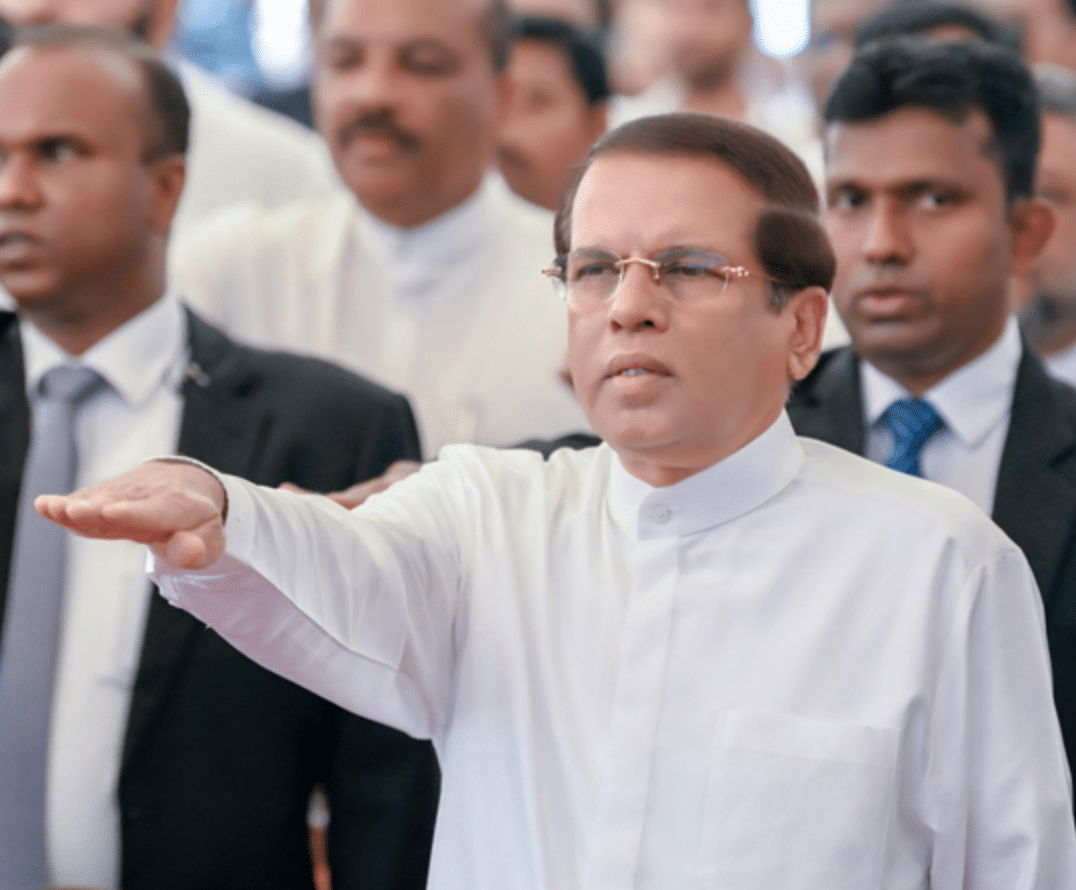For Sri Lankan president Maithripala Sirisena, the War on Drugs and the War on Terror go hand-in-hand. And the Easter attacks that rocked the capital city of Colombo on April 21 have boosted Sirisena’s anti-drug rhetoric, as he launches a drug war inspired by the bloody extrajudicial executions coordinated by Philippines President Rodrigo Duterte—which Sirisena considers to be “example to the whole world.”
On April 26, Sirisena claimed that the suspected terrorist organization responsible for the bombings, a little-known local group called National Thowheed Jamath, could have ties to drug trafficking—as is often speculated of other Islamist militant groups, like Islamic State (IS), to which the Sri Lankan group is allegedly linked.
“Let’s not forget the connection between the war against narcotics and terrorism,” said Sirisena at a press conference, where he also called for increased security forces across the country.
Specifically, the “emergence of terrorism could be a part and parcel of that unholy alliance” of “illicit drugs and crimes,” he added, according to state news media. Sri Lanka is not unfamiliar with non-state insurgent groups, nor militant groups that are financed by illicit drug trafficking. The state waged a long battle against the “Tamil Tigers,” an ethno-nationalist group, between 1983 and 2009. Colin P. Clarke, a Rand Corporation political scientist, identified the Liberation Tigers of Tamil Elam, to use their formal name, as “Among the most prolific terrorist organizations to rely on narcotics trafficking to fund its activities.”
The Easter day attacks have already inspired Islamophobic policy responses, like a ban on face veils. And the suspected involvement of terrorist groups in drug trafficking could further escalate Sirisena’s drug war, which was inaugurated on April 3 with Bakmaha Divuruma, “a phenomenal national pledge that commits each and everyone in the country to rise against use of drugs, importation of drugs and spread of drugs,” as the Sri Lanka Army described it.
“Bakmaha Divuruma”national anti-drug campaign was launched.I thank the nation for joining with me in the pledge to free Sri Lanka from the drug menace. pic.twitter.com/5TtAHExc7E
— Maithripala Sirisena (@MaithripalaS) April 3, 2019
In a January 2019 visit to The Philippines, Sirisena told Duterte that he planned to “follow your footsteps to control this hazard.” According the Philippines Drug Enforcement Agency, 4,948 people suspected of using or dealing drugs died during police operations from July 1, 2016 to September 30, 2018. But the real number of victims is far higher, since the headcount does not include thousands of others killed by unidentified gunmen. The Philippines Commission on Human Rights estimates that as many as 27,000 people have died in extra-judicial killings since 2016.
Today, I am honoured to visit the Police Headquarters in Philippines, to observe the Anti-Illegal Drugs Campaign of the Government. Their commitment is inspiring! Sri Lanka will cooperate directly with the movement, to eradicate the menace of illegal drugs in Sri Lanka.@DDBgov pic.twitter.com/K1bYojbjZF
— Maithripala Sirisena (@MaithripalaS) January 19, 2019
After his visit to the Phillipines, Sirisena begun the process of resurrecting executions of people suspected of selling drugs. Although drug trafficking carries the death penalty in Sri Lanka, no one, regardless of alleged offense, has been executed since 1976. But that could be changing, according to a Sri Lankan state representative.
“We never know if the government will resume the death penalty, but we want to hire two hangmen to fill vacancies and be ready if the government wants to execute drug traffickers,” Thushara Upuldeniya, a spokesman for the prison service, told Reuters.
News outlet CGTN reported that Sirisena also suggested that the attack may have been expedited in the face of his anti-drug crackdown.
Photograph: Sri Lanka Army





Show Comments